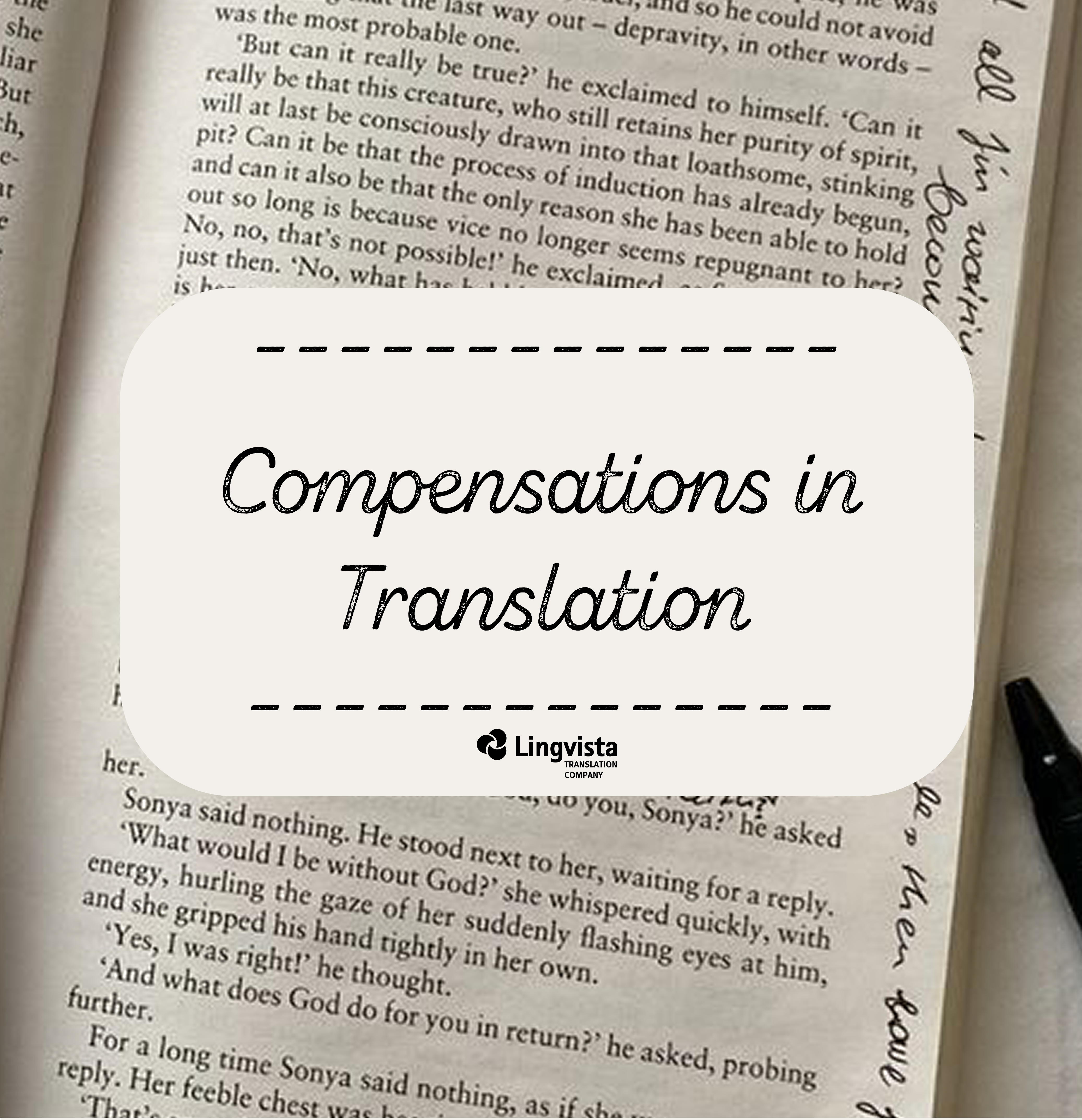Compensation in translation is an interesting and difficult phenomenon. On the one hand, compensation is considered a popular transformation and is often mentioned in classifications of translation techniques.
On the other hand, it is not always clear what exactly is meant by it.
In one of the key works on translation theory, Jacob Retsker explains compensation as the replacement of an indescribable element of the original with elements of a different order in order to preserve the artistic and ideological character of the text, taking into account the peculiarities of the Russian language. In this case, compensation may be semantic or stylistic in nature.
For example, when transmitting dialects or regional features of speech in literary texts, a literal translation may not be possible. Translators use colloquial vocabulary, colloquialisms, and short sentences to create a similar impression and preserve the character's personality.
From the point of view of linguistics, compensation happens:
• Horizontal — the substitution occurs at the same language level (for example, word by word);
• Vertical — a phenomenon of one level is compensated with the help of other linguistic means (phonetics is replaced by vocabulary);
• Contact — the compensation occurs in the same place of the text;
• Remote — the compensation element appears elsewhere.
Compensations are also important when translating stylistic effects such as jokes, puns, and alliteration. For example, English alliteration is often lost in Russian, and the translator has to compensate for it through rhyme or other means.
It is important to note that compensation is not so much related to the transfer of factual information as to the transfer of style, where it is impossible to find direct equivalents. This requires taking into account the overall artistic intent of the work and the original effect.
If the text has complex linguistic features that cannot be translated verbatim, it is compensation that helps to maintain an emotional and communicative impact on the reader.


